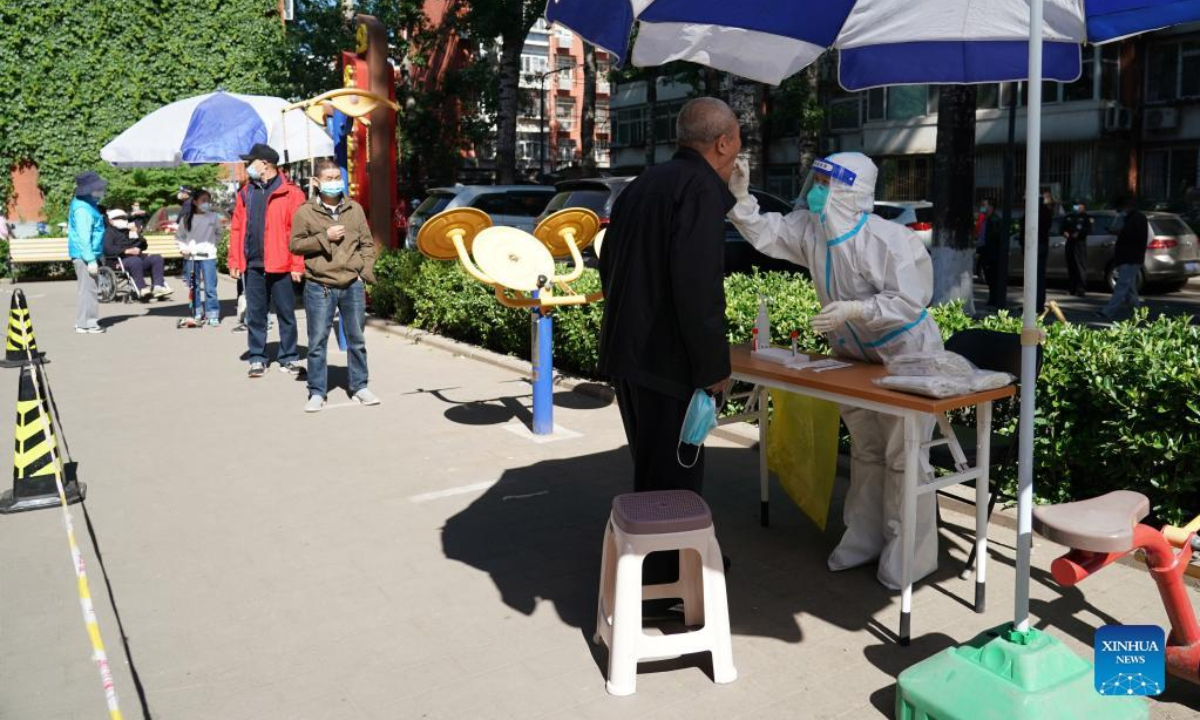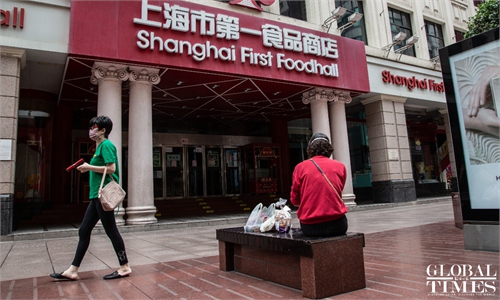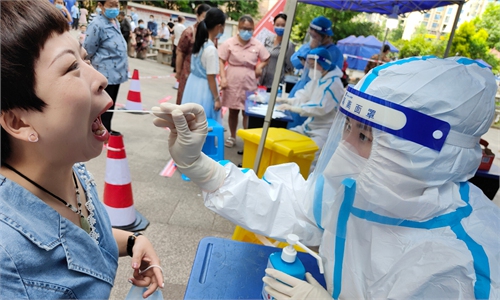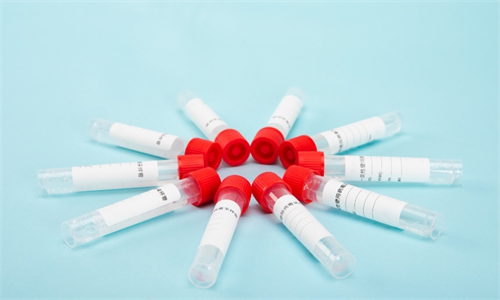Experts call for enhanced management on private nucleic acid testing labs given recent violations

A medic takes a swab sample from a resident for nucleic acid test at a community in Haidian District of Beijing, capital of China, May 13, 2022.Photo:Xinhua
The license of the Jinzhun Medical Testing Laboratories in Beijing was revoked by the local regulator as the lab was found violating official rules on coronavirus testing, media reported on Tuesday. So far, there have been three private virus testing facilities in Beijing investigated and punished for violations during the current outbreak of COVID-19, with leading experts calling for enhanced management.
A total of 17 employees from the lab in Beijing have been put under criminal compulsory measures for hindering the prevention and control of infectious diseases, local officials revealed at a press conference on Friday.
According to the authorities, in order to seek financial gain, the Beijing Jinzhun Medical Testing Laboratory mixed samples of three tubes together and diluted the samples on many occasions. This could affect the accuracy of the results of the test, leading to delayed detection and management of infected people and increased risk of virus transmission.
Previously, six staff from the Beijing Pushi Medical Testing Laboratory were put under criminal compulsory measures on suspicion of hindering the prevention and control of infectious diseases by violating official rules on nucleic acid testing.
Beijing Pushi lab's license was also revoked, according to media.
At a press conference on Sunday, officials said that Beijing's Zhongtong Lambo Medical Testing Laboratory is under police investigation. After an initial enquiry, police found that the lab, to save costs and keep up with its schedule, seriously violated the operational norms for COVID-19 testing by mixing multiple tests, even though it knew that the excessive amount of mixed tests could lead to inaccurate results.
Given the high price of nucleic acid tests, some private testing facilities tried to dilute the samples to make fewer tests than the number of samples collected, experts noted.
Previously, the price of each nucleic acid test in China was 120 yuan ($18) per person. Now, tests are less than 20 yuan ($2.99) or even free in many places under the normal epidemic-management mechanism.
Despite recent reports, experts said private testing facilities are still necessary to meet the large demand for nucleic acid testing as the country is launching a normal testing mechanism. However, they called for enhanced management on these facilities.
Beijing has been counting on nucleic acid testing to fight against the Omicron variant without having to resort to a lockdown and local authorities have enhanced supervision and management of the testing laboratories.
Based on the experiences of Shenzhen and Beijing, China is also building 15-minute nucleic acid testing sites in cities nationwide.
According to official data, as of May 20, there were about 13,000 qualified nucleic acid testing facilities across the country with more than 150,000 qualified nucleic acid technicians.
The Chinese authorities will investigate these labs once a month while the approval rate of these labs has been about 99.4 percent until now, media reported.



